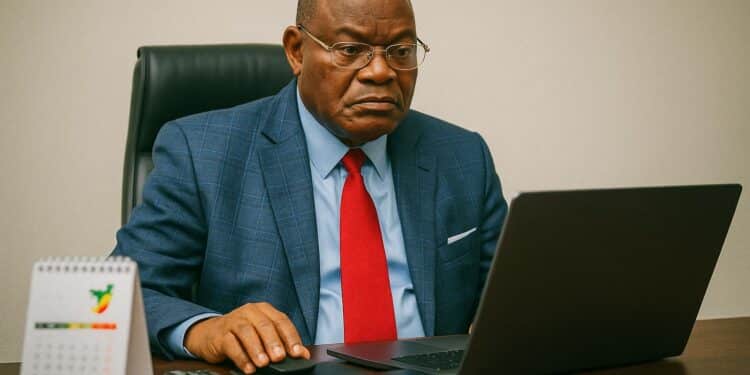Measured Progress on a Challenging Baseline
February 2025 offered a rare moment of positive international attention for Brazzaville: Transparency International’s Corruption Perceptions Index placed the Republic of the Congo at 151st out of 180 states, a fourteen-place ascent since 2019. The raw score, inching from 19 to 23 in five years, still situates the country below the global mean of 43, yet the direction of travel is unmistakably upward. In a region where half of the jurisdictions populate the bottom quartile of the table, even a modest uptick resonates. World Bank Governance Indicators and Afrobarometer trend lines corroborate a gradual, albeit uneven, improvement in public-sector accountability, while a February 2025 Reuters dispatch highlighted a perceptible shift in investor rhetoric from scepticism to conditional optimism.
From Statute to Strategy: HALC’s Expanding Toolkit
The statutory birth of the Haute Autorité de Lutte contre la Corruption under Law 3-2019 has come to symbolise Brazzaville’s determination to anchor anti-graft efforts in durable institutions. Chaired by financial-crime specialist Emmanuel Ollita Ondongo, the body has combined classic investigative powers with an emphatic communications strategy. Since 2020, HALC teams have traversed every département, convening seminars that pair provincial administrators with civil-society advocates, an approach praised by the United Nations Office on Drugs and Crime for its “multi-stakeholder pragmatism”. Complementary legislation—most notably the 2019 asset-declaration statute and the 2022 prevention and enforcement act—supplies legal levers that, on paper, meet the benchmarks of both the UN Convention against Corruption and the African Union’s Maputo instruments.
Regional Comparisons and the Diplomacy of Rankings
Numbers acquire diplomatic significance once juxtaposed with neighbours. Between 2019 and 2024, Congo-Brazzaville gained four CPI points; Angola added six, while Cameroon, Gabon and the Central African Republic either stagnated or slipped. The pattern enables Brazzaville to position itself as an emerging standard-setter within Central Africa, a narrative quietly reinforced in recent Economic Community of Central African States communiqués. European Union envoys acknowledge the comparative momentum, noting in closed-door briefings that Congo’s compliance rate with regional asset-recovery requests now exceeds 70 per cent, the highest in the sub-region.
Judicial Follow-Through: The Next Frontier
Transparency International’s leadership nonetheless cautions that index gains risk plateauing unless investigative diligence is matched by prosecutorial outcomes. Domestic observers concur. The Congolese Bar Association reports a rise in corruption cases forwarded by HALC, yet a limited number proceed beyond the indictment phase. A senior magistrate, requesting anonymity, attributes the bottleneck to procedural overload rather than political interference, arguing that specialised training for judges would accelerate dispositions. Comparative evidence from Tanzania, where a fast-track court system vaulted its CPI score by nine points in four years, suggests that adjudicative capacity can be a decisive variable.
Cautious Optimism Among International Partners
For multilateral lenders and diplomatic missions, the recent uptick functions as a confidence signal rather than a definitive verdict. The International Monetary Fund’s December 2024 Article IV consultation commended Brazzaville’s “notable strides in institutional integrity” while conditioning future disbursements on the publication of audited recovery figures. French Development Agency officials draw a direct line between CPI improvement and the re-activation of a dormant €85-million infrastructure envelope. Such calibrated endorsements suggest that the external community views the HALC not merely as a regulatory accessory but as a linchpin of fiscal credibility.
Momentum, Not Mission Accomplished
Five years of incremental gains do not erase decades of systemic vulnerability. Yet the trajectory recorded since 2019 demonstrates that determined statutory reform, sustained civic outreach and incremental institutional learning can tilt the balance. Should forthcoming judicial reforms translate indictments into precedents, Congo-Brazzaville could graduate from regional outlier to reference case for calibrated anti-corruption advancement. Diplomatic interlocutors will continue to scrutinise metrics, but for now the HALC’s quiet but consequential work has nudged the country onto a more credible governance path.











































